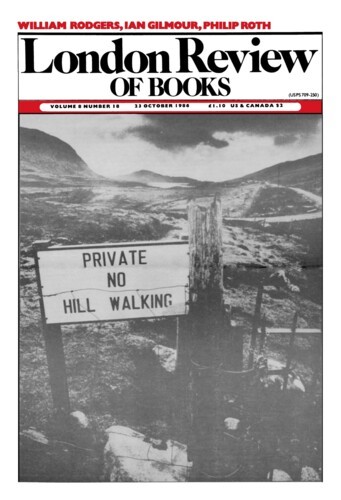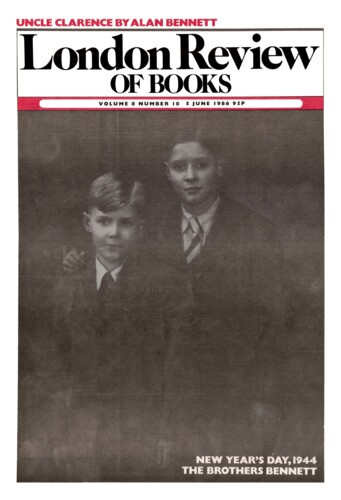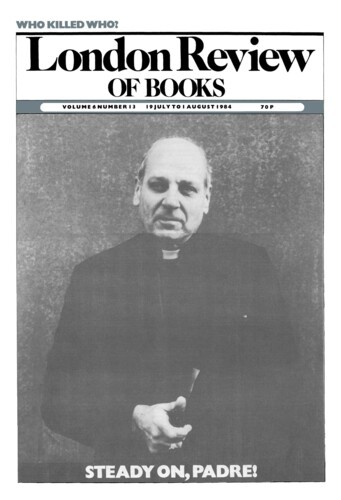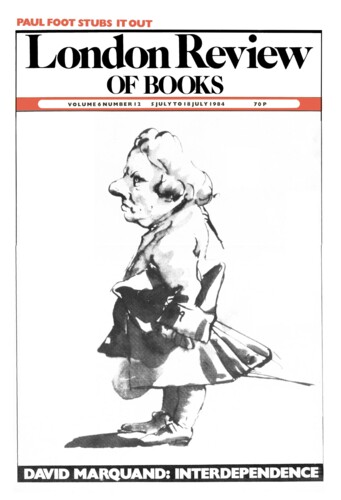Cheeky
J.I.M. Stewart, 23 October 1986
In the fourth act of Measure for Measure the Provost describes the prisoner Barnardine, whose head, when severed, it is proposed to pass off as Claudio’s, as ‘a man that apprehends death no more dreadfully but as a drunken sleep – careless, reckless, and fearless of what’s past, present, or to come: insensible of mortality, and desperately mortal’. David Smith finds most of this description eminently applicable to H.G. Wells (whom he intensely admires) and he adopts its final two words as a subtitle for his biography. What sense Shakespeare attached to them is doubtful. Johnson suggests ‘likely to die in a desperate state’, but Professor Smith seems to view them as equivalent to ‘desperately unreconciled to dying and giving up’. And Wells did, it seems, when celebrating his 70th birthday, tell an audience that ‘he was not yet ready to go.’ ‘He clung to life,’ Professor Smith comments on this, ‘and to his mission to make us and our world better.’ Yet we learn that eight years later Wells appears to have been of another mind, recording of himself: ‘The present writer is in his 79th year; he has lived cheerfully and abundantly. Like Landor he has warmed both hands at the fire of life and now, as it sinks towards a restrictive invalidism, he is ready to depart … He awaits his end, watching mankind, still keen to find a helpful use for his accumulation of experience in this time of mental confusion, but without that headlong stress to come to conclusions with life, which is a necessary part of the make-up of any normal youngster, male or female.’ Wells, that is to say, still wants to sort us out, but is at the same time perfectly ready to call it a day. Just how he came to be ‘desperately mortal’ surely remains obscure. There is a point in The Island of Dr Moreau – unnoticed by Professor Smith – at which the narrator reveals his state of mind when hunted by the Beast People. He had been ‘too desperate to die’. Whether any light is to be extracted from this, I don’t know.’





